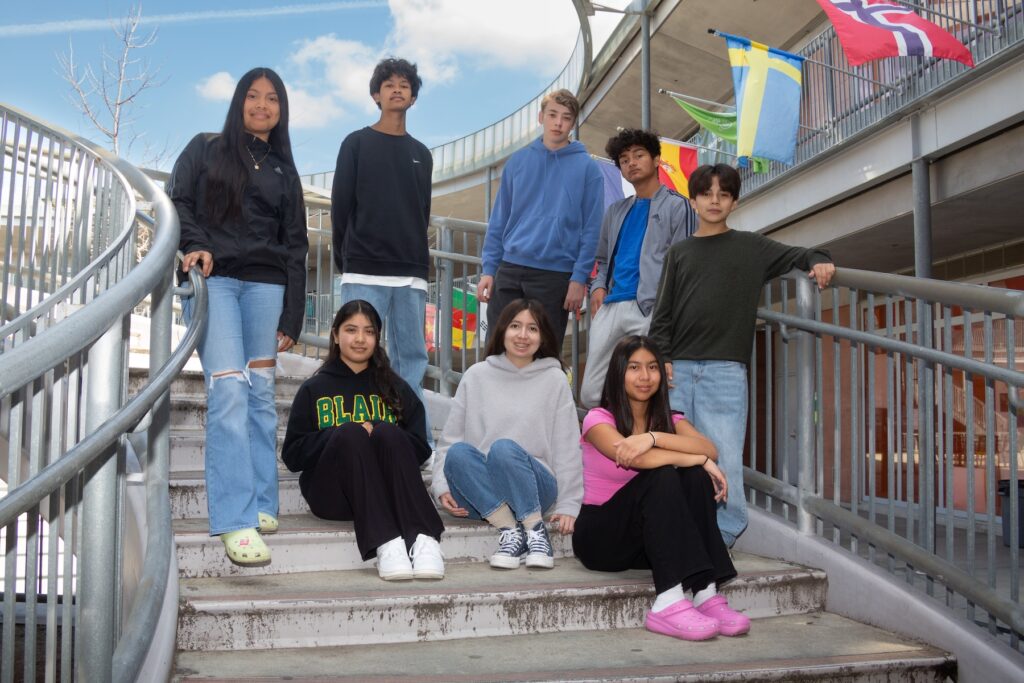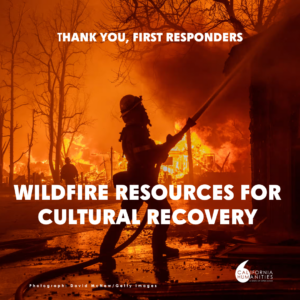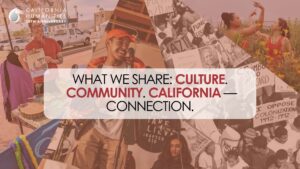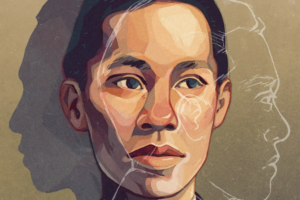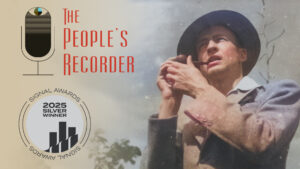Photo caption: Ninth-grade participants in the Building Empathy project, from Blair High School in Pasadena. Courtesy of Sehba Sarwar.
In the summer of 2023, eight ninth graders attended a week of professional development training at Pasadena Unified School District’s (PUSD) annual Ethnic Studies Institute alongside high school teachers from across the district. The goal was to give students a “voice and choice in their learning” by inviting them to co-create modules to teach at the lower levels at Blair’s middle school. This work was part of Building Empathy, a community-based education project that engages students and teachers across the district in the history of Japanese American incarceration during World War II and the connections between this dark chapter of American history and contemporary civil rights struggles related to race, national origin, immigration status, religion, gender, and sexual orientation.
Led by the Pasadena Educational Foundation, a non-profit organization founded in 1971 to enhance educational programs in the Pasadena Unified School District (PUSD), Building Empathy was among the first projects awarded one of 13 Civics + Humanities Middle Grades Grants (Implementation Grant) in the program’s pilot launch year in 2023. This California Humanities program supports civic education for California’s middle grades-aged youth (grades 6-8 or ages 10-14) in school and beyond.
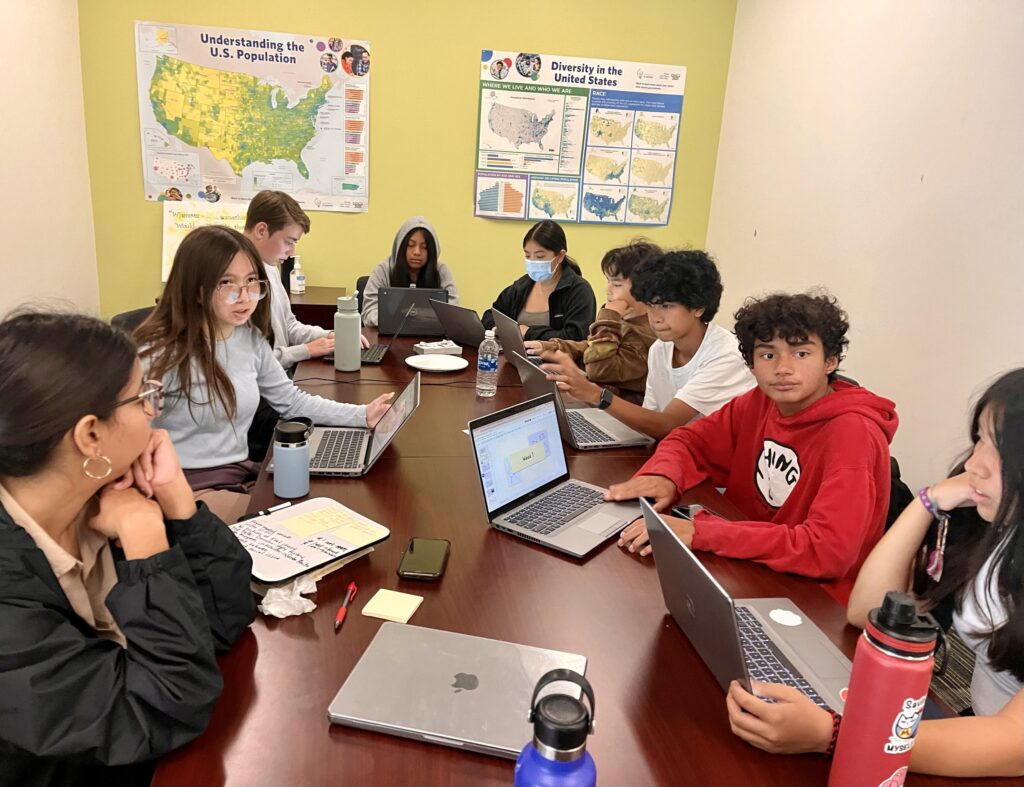
Into spring 2024, the ninth-grade students will develop and teach lessons about the Japanese American experience, and lead workshops for middle school students on their campus. The workshops will culminate with students from three middle school classrooms presenting their independent projects.
Participant reflections
During 2022-23, through field trips and research, two sets of 8th grade students acquired knowledge about the Japanese American experience during and after WWII. This year, thanks to California Humanities’ new middle school initiative, eight of last year’s students applied to serve as middle school “teachers.” They deepened their learning alongside their teachers and collaborated with each other to develop lesson plans. This spring, through the middle school workshops that they are offering to middle-schoolers, the student-teachers have shared slideshows, documentary excerpts, and offered lectures. Watching their transformation from being learners to leaders has been exciting.
Sehba Sarwar, Pasadena Educational Foundation’s Student Engagement Manager
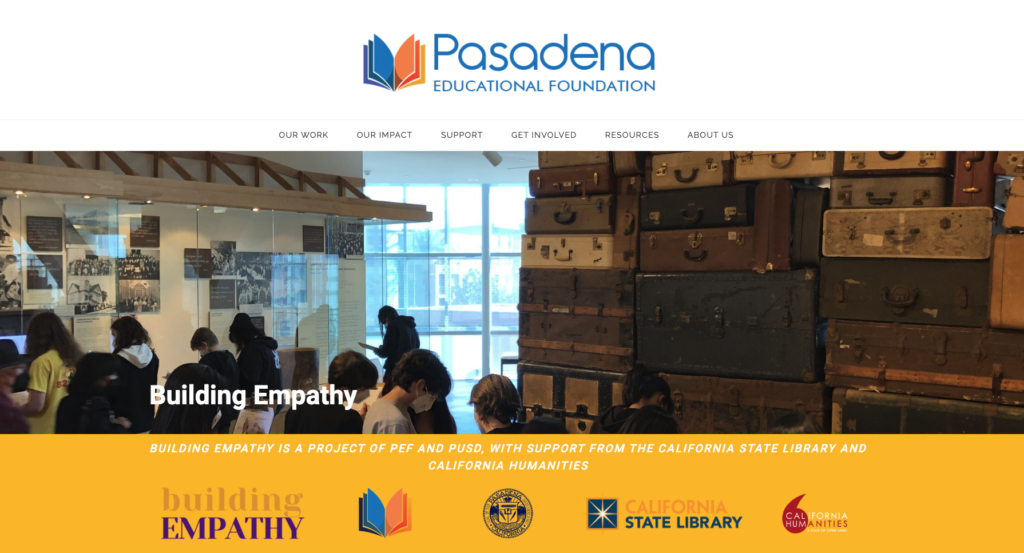
The exciting thing about being a student-teacher is seeing how the lessons impact the students’ lives. It’s very rewarding when you see the ideas click for them, and how they realize that history is connected and intertwined in our lives. This has been an amazing program that has taught me so much and has deepened my sense of awareness and empathy for social issues.
-Olivia, Blair International Baccalaureate High School 9th grader
It’s exciting for me to realize how groundbreaking our Building Empathy project is. Last summer, eight of my students (incoming 9th grade student-teachers) were invited to attend a week-long Ethnic Studies Institute alongside teachers—it was the first time students were included in professional development sessions. I was so proud of how they contributed to the discussions. I hope their presence helped the other adults consider how important it is to ask students for input and give them voice and choice in their learning. And I hope students will continue to be invited to these kinds of sessions in the future.
Ms. Jesus Cobian, Blair International Baccalaureate Middle and High School, Spanish Dual Language Immersion instructor, Pasadena Unified School District
To learn more about the Building Empathy project, visit the project website.
Pasadena Educational Foundation’s Building Empathy project is supported by funding provided by the State of California through the California Civil Liberties program, administered by the California State Library, and with support from California Humanities, a non-profit partner of the National Endowment for the Humanities.

